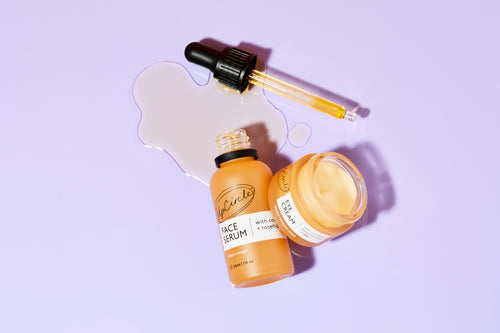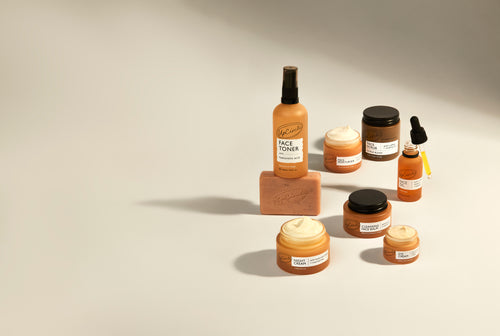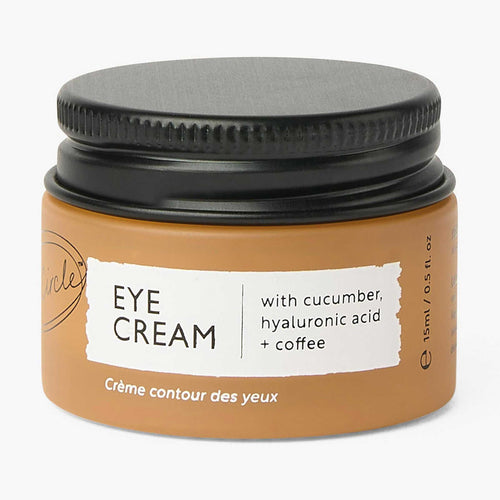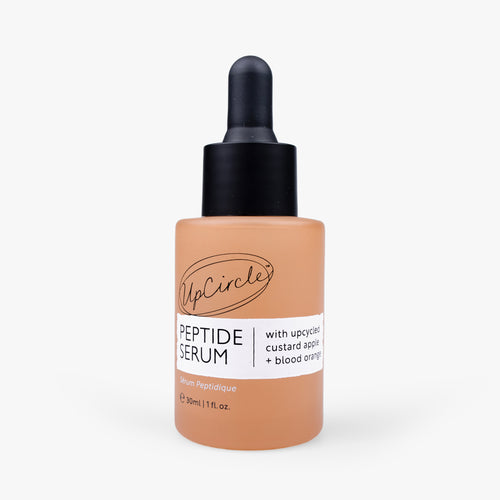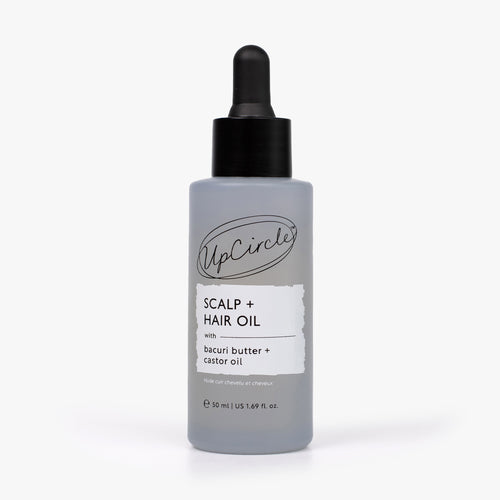For many people, skincare is more than just a way to hydrate and replenish the skin, but a way to take a few moments to unwind and connect with themselves.
That’s where the world of neurocosmetics comes into play. Find out what neurocosmetics are and how they’re used in skincare.
What is neurocosmetics?
The basis behind neurocosmetics is that the brain and skin are connected. Much like how it’s generally accepted that the brain and the gut are connected, neurocosmetics works on the idea that as products come into contact with the skin and nerve endings within the dermis, certain active ingredients may impact your mood.
We always advocate for skin neutrality – accepting your skin for what it is – and it’s important to keep in mind that your skin is actually the largest organ you have. Research has found that there is actually a ‘close relationship between the skin and the nervous system’, making what we put on our skin ever more important.
We won’t dive too much into the science behind it all, but neurocosmetics contain nontoxic, bioactive ingredients that have the ability to work at a neurological (relating to the nervous system) level.
Neurocosmetics in skincare
It’s not often considered, but many emotions are felt to some degree at skin-level: whether that be going pale (vasoconstriction) and getting goosebumps when you’re afraid, or sweating and blushing (vasodilation) when stressed.
Sensations felt on the skin – for example using a body cream – produce stimuli that are transmitted to the nervous system through mediators such as neurotransmitters. There are around 200 neuromediators currently known, and about 25 have been found in the skin.
When it comes to neurocosmetics, the nerve endings in the dermis receive the sensory information as you apply a product, and transmit this information to your nervous system.
Sensory considerations
Another aspect of neurocosmetics is considering how the product actually feels to apply, and the sensory experience it provides users with. Things such as texture, appearance and aroma can elicit emotions and different perceptions of a product and its efficacy.
A study found that when considering three lip balms, all with the same ingredients bar a different type of emollient for each, each was appreciated differently. All the lip balms had the same appearance and aroma, differing only in texture. Researchers used simultaneous electroencephalography (EEG) and galvanic skin response (GSR) measurements throughout the experiment – coupled with other data sources – to ‘paint the full picture of emotion’.
This concept is also integrated into products that do not fall under the neurocosmetics category, with brands wanting to make sure that their products look, feel and smell equally lovely. At UpCircle, we work hard to ensure our products are not only packed with natural upcycled ingredients, but also feel wonderful to use.
Ingredients to look for beyond neurocosmetics
As the field of neurocosmetics is still evolving, we like to stick to natural, organic skin-loving ingredients in our products. We trust that our ethos, circular economy and high-quality products – the whole experience of using an UpCircle product – elicits a positive emotion.
1. Collagen
As the most abundant protein in mammals, collagen is absolutely essential for the body – comprising around 30% of the proteins in the whole body. Collagen is actually a family of 28 known substances rather than one single substance, with type I collagen being by far the most abundant of all of the collagen in the human body.
While the body does produce its own collagen, it gradually makes less as we age. Additionally, collagen production can also drop due to environmental factors such as excess sun exposure and sun damage, smoking, excess alcohol, and a lack of sleep and exercise.
Collagen-stimulating UpCircle products include our Night Cream with Hyaluronic Acid and Niacinamide, and our Organic Face Oil with Coffee Extract.
Enriched with niacinamide and pro-retinol to increase the natural production of collagen, our Night Cream replenishes the skin's natural barrier. Pro-retinol works to reduce signs of ageing, while upcycled blueberry extract works to protect your skin against harsh blue light.
Our best-selling Organic Face Oil with Coffee Extract contains both the natural retinoids rosehip oil and sea buckthorn oil, and is also rich in vitamin C. As this oil is completely oil based, it works through occlusion, locking in the hydration provided by the moisturiser by forming a protective seal over the skin.
2. Hemp seed oil
Sometimes known just as hemp oil, hemp seed oil is obtained from the cold-pressed seeds of the cannabis sativa plant. While the name cannabis sativa may scare off some people, you can rest assured that hemp seed oil contains no more than trace amounts of cannabinoids – a class of biological compounds that bind to cannabinoid receptors.
Arguably the most commonly thought of cannabinoids are tetrahydrocannabinol (THC) and cannabidiol (CBD) which are classed as phytocannabinoids, as they are derived directly from nature and the cannabis plant.
Strengthening the skin’s natural barrier and protecting against environmental stressors, hemp seed oil helps to soothe stressed and irritated skin.
You can find hemp seed oil in our Lip Balm. Made from upcycled hemp seeds leftover as a by-product from the food industry, the hemp seed oil we use in our lip balm is a responsibly sourced, linoleic-rich active oil with a standardised level of natural CBD.
Proven to outperform standard hemp oil, the hemp seed oil used in our lip balm is a potent antioxidant and particularly ideal for dry, sensitive skin on the lips.
3. Natural peptides
There are several different types of peptides which all perform different actions, including:
- Signal peptides: carries information for protein secretion.
- Carrier peptides: carries specific ingredients.
- Neurotransmitter peptides: can function as either hormones or neurotransmitters to carry messages to other cells. This is an neurocosmetic ingredient.
Peptides for skin work to repair the skin’s natural barrier, promote skin elasticity and stimulate collagen production – what’s not to love?
Many of our moisturisers contain sunflower seed oil, which is a great source of natural peptides.
Discover our full range of products at UpCircle.

